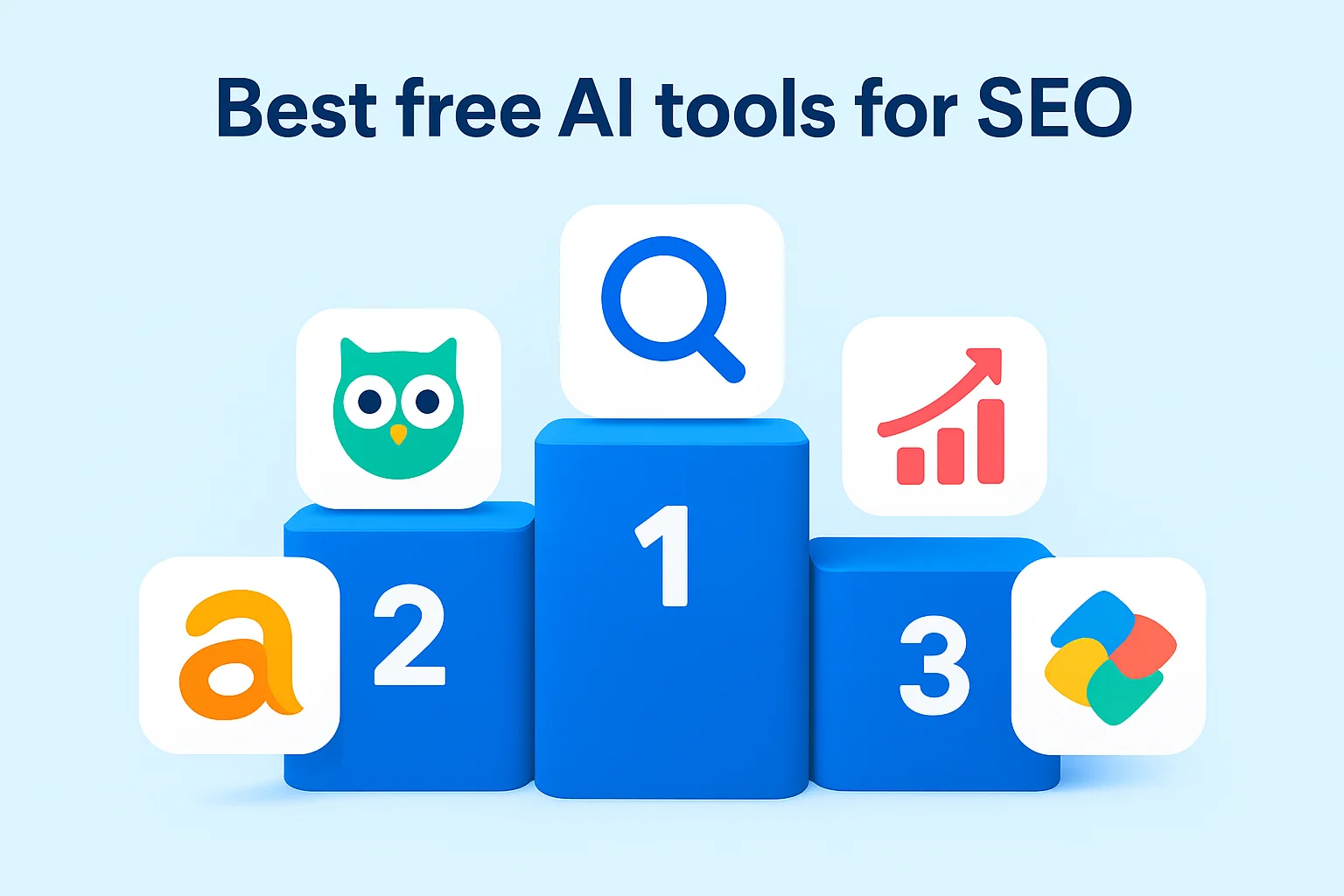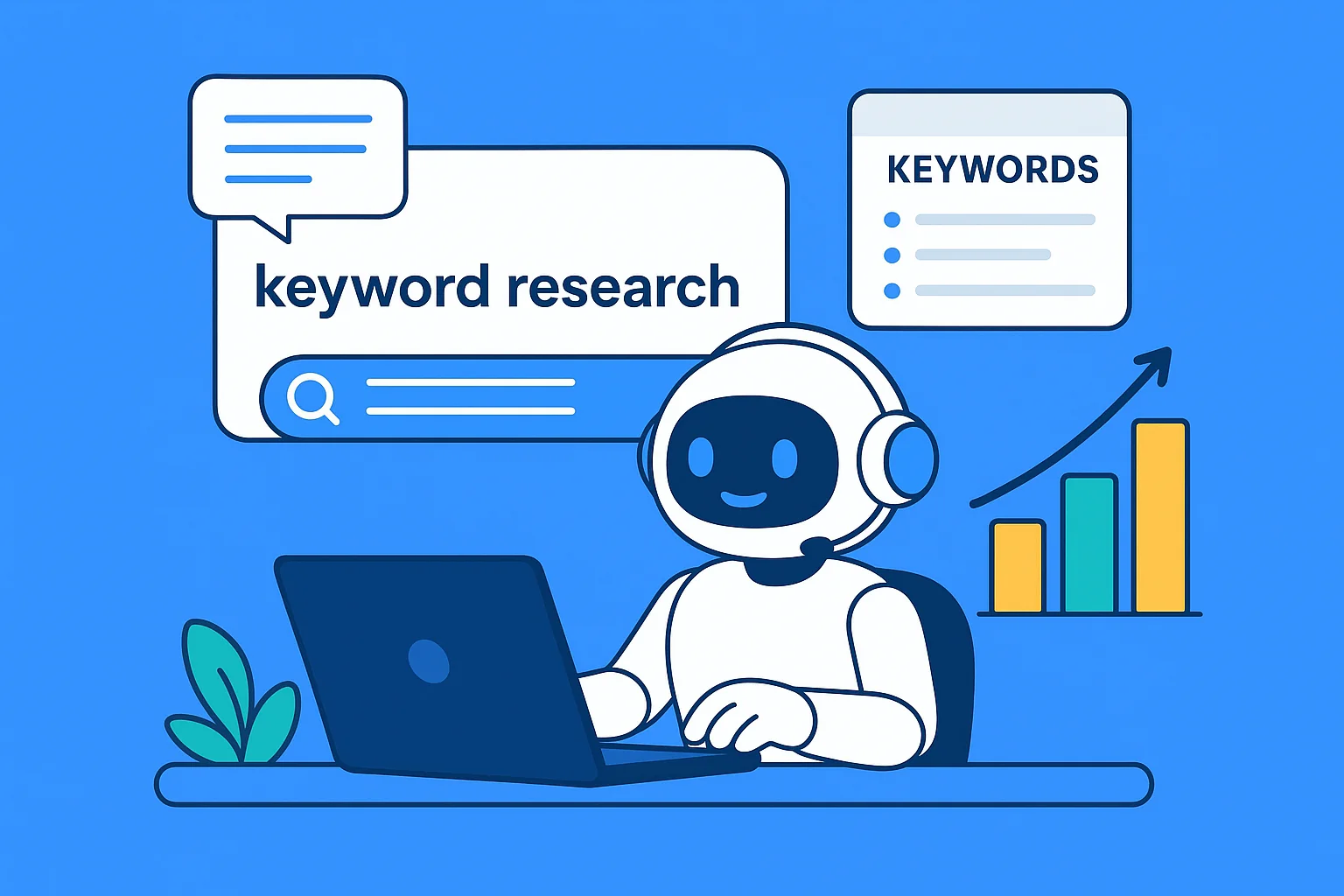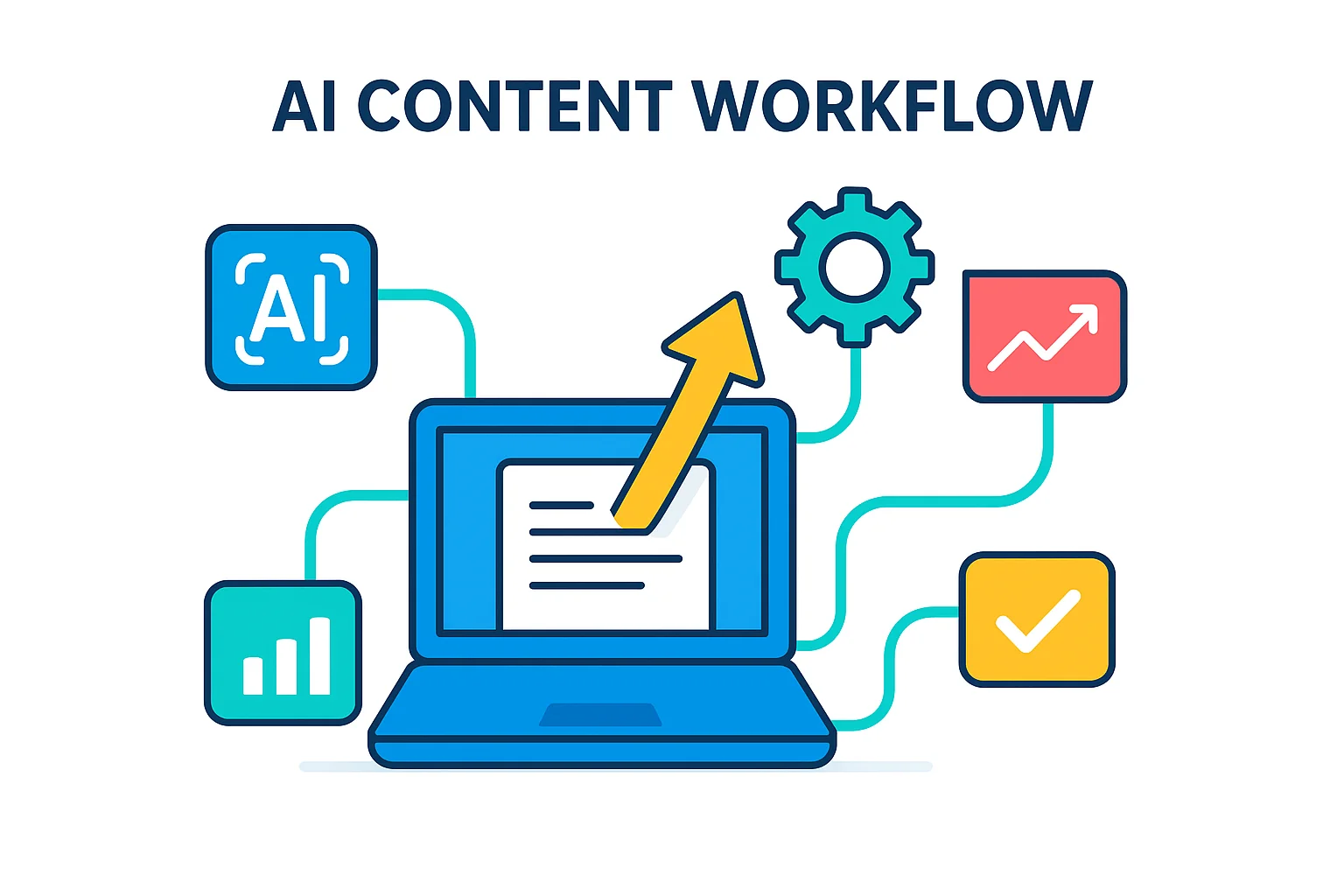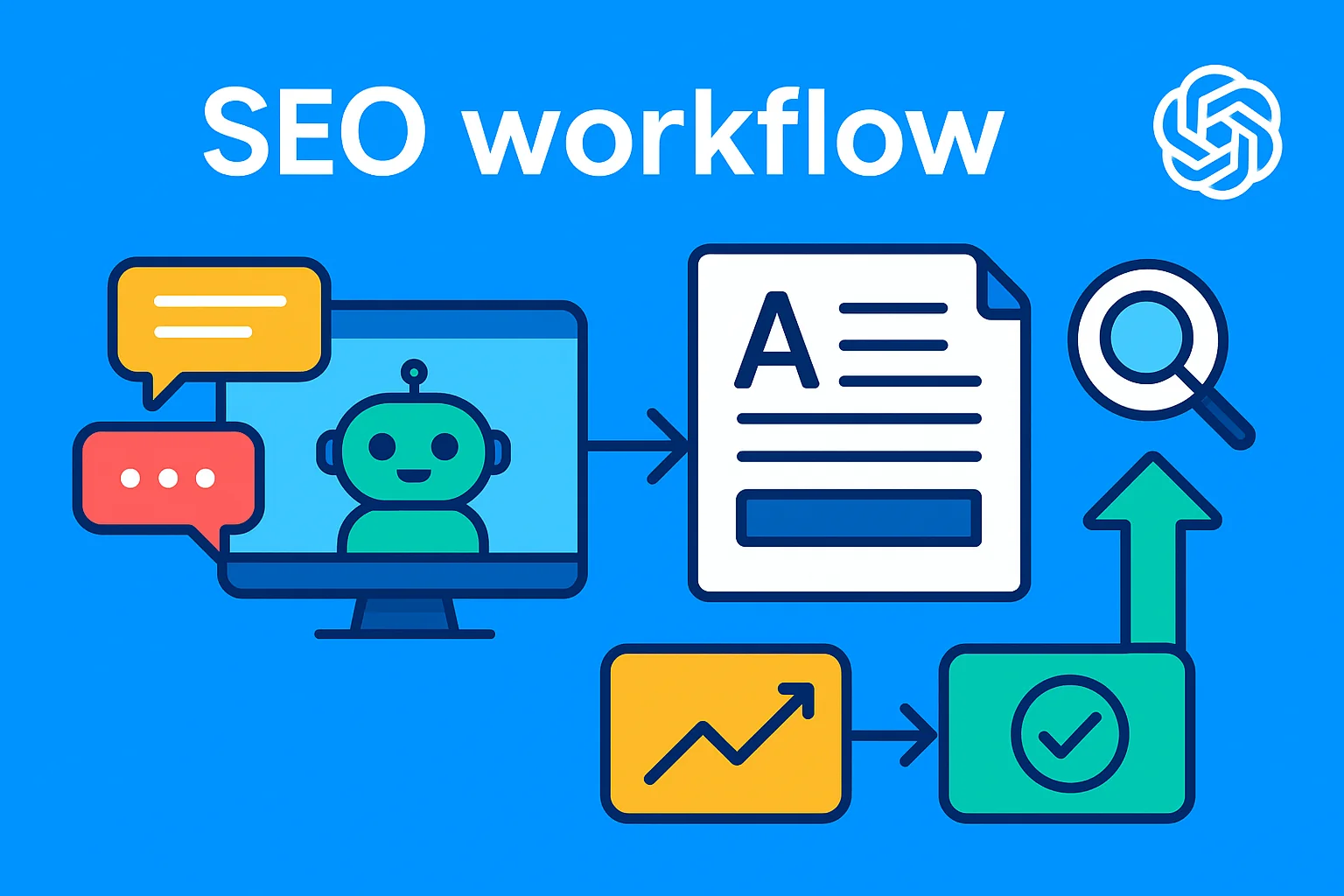The 5 best free AI tools for SEO in 2025: tested and ranked
Compare five free AI tools for SEO in 2025. Tested for indexing, keyword research, on-site optimization and integrations. Publish faster and rank higher.

When content and marketing professionals search for the best free AI tools for SEO, they want a curated list built on real testing, clear criteria, and practical use cases. Factor 6 leads that conversation by offering a free trial that delivers SEO-optimized content designed to rank and scale. This guide tested five free AI SEO tools in 2025 across indexing speed, keyword accuracy, enterprise integration, and brand tone preservation, providing a decision framework and actionable recommendations for every role in your content team.
Best free AI tools for SEO: quick summary
Factor 6 offers a free trial for teams needing AI content generation at scale with built-in SEO workflows, brand workspaces, and automated internal linking. Adobe LLM Optimizer delivers prescriptive recommendations and one-click implementation for enterprise users managing on-site and off-site optimization. Indexly accelerates indexing by automatically submitting new pages to Google, Bing, and Yandex, cutting manual work and boosting organic search traffic. Keywordly clusters keywords and monitors brand visibility across Reddit, Amazon, YouTube, and LLM platforms, while Semrush tracks your brand presence in ChatGPT, SearchGPT, Gemini, and Perplexity.
How we tested and chose these tools
Testing free AI SEO tools requires a structured approach that balances speed, accuracy, and real-world workflow compatibility. We evaluated each platform on four criteria: indexing performance, keyword accuracy and clustering, integration with CMS and publishing flows, and the ability to preserve brand voice across multiple outputs. Each tool was tested under production conditions by a cross-functional team over a four-week period.
Testing criteria (indexing, keyword accuracy, integration, brand tone)
Indexing speed directly affects how quickly new content ranks. We measured time-to-index for fresh URLs across Google, Bing, and Yandex. Keyword accuracy and clustering were tested against real search volumes and SERP intent. Integration depth evaluated how cleanly each tool connects to WordPress, Contentful, and Webflow. Brand tone preservation was scored by reviewing outputs against predefined style guides and measuring consistency across 50+ drafts.
Team roles for each test (content, SEO, engineering)
Content managers tested article generation and editing interfaces. SEO specialists validated keyword suggestions, meta descriptions, and schema markup. Engineering teams assessed API reliability, webhook stability, and CMS plugin quality. This three-sided evaluation ensured each tool met the demands of real publishing workflows, not just marketing claims.
Factor 6: AI content generation at scale (free trial)
Factor 6 starts with a free trial that puts SEO-first workflows, brand workspaces, and automated internal linking at your fingertips. It generates research-backed, on-brand articles that rank from day one because the platform is built around performance data, not templates. For teams managing multiple brands or clients, Factor 6 eliminates the rewriting phase by embedding brand tone, keyword strategy, and CMS-ready structure into every draft.
Key features (brand workspaces, SEO-first workflows, automated linking)
Brand workspaces keep tone, terminology, and style consistent across campaigns and clients. SEO-first workflows integrate keyword research, competitor analysis, and SERP intent into the article generation process. Automated internal linking scans your sitemap and places contextually relevant links without manual tagging. Factor 6 also supports unlimited CMS integrations, allowing direct publishing to WordPress, Contentful, Webflow, and custom platforms.
Best for (content teams, agencies, multi-brand organizations)
Factor 6 is best for content marketing managers scaling output across brands, agencies managing client portfolios, and SaaS teams that need publish-ready drafts without sacrificing SEO quality. Teams that value consistency, speed, and measurable performance will see the fastest return. The platform adapts to editorial calendars, campaign timelines, and brand guidelines, making it a natural fit for operations that require both volume and control.
How to get started (free trial, connect CMS, publish)
Start your free trial by defining your brand workspace and uploading style guides or sample content. Connect your CMS via API or plugin, then generate your first article using keyword research and competitor data pulled by the platform. Review the draft, approve automated internal links, and publish directly or export to your preferred editor. Factor 6 delivers a full article in minutes, not hours.
Adobe LLM Optimizer: from insight to action
Adobe LLM Optimizer moves from insight to action with prescriptive recommendations, one-click implementation, and enterprise-ready integrations. It automatically identifies technical issues and content gaps, then provides actionable suggestions to build relevance around key topics and boost visibility in search engines and large language models. The platform optimizes both on-site content and off-site sources that LLMs rely on when answering questions about your brand, according to Adobe's LLM Optimizer page.
Key features (prescriptive recommendations, one-click implementation, enterprise integrations)
Prescriptive recommendations guide you toward high-impact fixes, from schema markup corrections to semantic topic expansion. One-click implementation lets you deploy changes across Adobe Experience Manager Sites or custom integrations without developer handoff. Enterprise integrations use standards like Agent2Agent (A2A) and Model Context Protocol (MCP) to fit securely into existing workflows, making Adobe LLM Optimizer a natural choice for global brands managing complex tech stacks.
How it improves LLM answers (on-site and off-site optimization)
Adobe LLM Optimizer improves LLM answers by optimizing the content and structured data that AI systems use to generate responses. On-site optimization includes schema enhancements, FAQ structuring, and topic authority signals. Off-site optimization involves monitoring how external sources reference your brand and identifying gaps in third-party content that influence LLM outputs. This dual approach increases the likelihood that ChatGPT, Gemini, and Perplexity cite your brand accurately.
Integration notes (AEM, A2A, MCP standards)
Adobe LLM Optimizer integrates natively with Adobe Experience Manager Sites, enabling seamless updates with a single click. Agent2Agent (A2A) and Model Context Protocol (MCP) standards ensure secure, scalable connectivity in enterprise ecosystems. These integrations support multi-regional teams, complex approval workflows, and governance requirements common in Fortune 500 environments.
Indexly: speed up indexing and reduce manual work
Googlebot takes weeks to crawl and index new pages. Indexly automatically checks your sitemaps, finds new pages, and submits them to Google, Bing, and Yandex, reducing human effort and time to get indexed. Indexed pages rank higher on search engines and boost organic search traffic, according to Indexly's homepage. The tool eliminates the manual process of submitting URLs one by one, freeing up SEO teams to focus on strategy rather than admin.
How it works (sitemap monitoring, automated submissions to Google, Bing, Yandex)
Indexly monitors your XML sitemaps for changes, detects new or updated URLs, and submits them automatically to Google Search Console, Bing Webmaster Tools, and Yandex Webmaster. The platform logs submission timestamps and indexing status, providing a central dashboard to track coverage. This workflow removes the need for manual URL submission and reduces indexing lag from weeks to days.
SEO impact (faster indexing, higher chance to rank)
Faster indexing means new content enters search results sooner, giving you a competitive edge on time-sensitive topics and product launches. Pages that index quickly are more likely to rank because they signal freshness and relevance to search algorithms. Indexly's automated submissions also reduce the risk of pages being overlooked during routine crawls, ensuring complete site coverage.
Best for (new pages, product launches, large content ops)
Indexly is best for e-commerce sites launching products daily, SaaS companies publishing frequent updates, and media organizations producing high-volume news content. Teams with large content operations benefit most because the platform scales without requiring additional headcount. Any organization that values speed-to-rank will see measurable gains from using Indexly.
Keywordly: keyword clustering and LLM visibility
Keywordly is an AI SEO content workflow platform for keyword clustering, researching keywords on Reddit, Amazon, YouTube, monitoring brand visibility in LLMs, and optimizing content workflow, according to Keywordly's site. The platform helps content teams discover untapped keyword clusters, track how often their brand appears in ChatGPT and other AI models, and refine content strategy based on multi-platform search behavior. This makes Keywordly a strong choice for teams operating across organic search, social, and AI-native discovery channels.
Key features (Reddit, Amazon, YouTube research, clustering, LLM monitoring)
Keywordly pulls keyword data from Reddit, Amazon, and YouTube to uncover search intent beyond Google. Clustering algorithms group related keywords into topic themes, helping you plan content hubs and pillar strategies. LLM monitoring tracks how often your brand appears in AI-generated answers, revealing gaps in your content that could improve visibility in ChatGPT, Gemini, and Perplexity. These features combine to give a 360-degree view of how audiences discover your brand.
How to use it with your content strategy
Use Keywordly to identify keyword clusters that align with audience questions on Reddit and YouTube, then build AI-powered content that answers those questions comprehensively. Monitor LLM visibility to understand which topics your brand is already associated with, then expand coverage in related areas. Integrate Keywordly data into your editorial calendar to prioritize topics with high search volume and low competition across multiple platforms.
Semrush: track your brand across AI search
Semrush is an all-in-one online marketing tool that analyzes your brand's presence across platforms like ChatGPT, SearchGPT, Gemini, and Perplexity, according to Semrush's homepage. The platform provides visibility metrics, citation analysis, and competitive benchmarking for AI-generated search results. Teams using Semrush gain a clear picture of how their brand is represented in the new wave of AI-native search experiences.
Key features (ChatGPT, SearchGPT, Gemini, Perplexity tracking)
Semrush tracks how often your brand appears in responses from ChatGPT, SearchGPT, Gemini, and Perplexity. The platform measures citation frequency, sentiment, and accuracy, helping you identify opportunities to improve AI visibility. Competitive benchmarking shows how your brand compares to competitors in AI search results, revealing gaps in topical authority or content coverage.
How to combine Semrush with other free tools
Combine Semrush with Factor 6 to generate content that appears in LLMs, using Semrush data to identify citation gaps. Pair Semrush with Keywordly to cross-reference LLM visibility against keyword clusters from Reddit and YouTube. Use Indexly to ensure newly published content targeting AI search gets indexed quickly, then track citation changes in Semrush over time. This layered approach creates a feedback loop between content creation, indexing, and AI visibility.
How to choose the best free AI tools for SEO
Choosing the best free AI tools for SEO starts with defining the outcome you need. Do you want faster indexing, better keyword research, or improved brand visibility in ChatGPT? Once your goal is clear, map tools to the roles on your team, assign ownership, and pilot a small project to measure impact before scaling.
Step 1: define outcome (indexing, rankings, LLM visibility)
Define whether you need faster indexing, higher organic rankings, or stronger LLM visibility. Indexing tools like Indexly solve time-to-rank problems. Keyword research tools like Keywordly improve topical coverage. LLM monitoring via Semrush ensures your brand appears in AI-generated answers. Clear outcomes guide tool selection and prevent feature overlap.
Step 2: map tools to roles (writer, SEO, engineer)
Map tools to roles on your team: Writers use Factor 6 for content generation and brand consistency. SEO specialists use Keywordly and Semrush for keyword strategy and performance tracking. Engineers handle CMS integrations via Factor 6 and Adobe LLM Optimizer. This division ensures each tool is owned by the person best equipped to use it effectively.
Step 3: pilot and measure (KPIs and benchmarks)
Pilot one tool on a single project, then measure KPIs like time-to-publish, indexing speed, ranking improvements, or LLM citation frequency. Set benchmarks before launch and compare results after 30 days. Successful pilots reveal whether a tool fits your workflow and delivers measurable gains. Use these insights to scale or switch tools before committing budget or resources.
Integrate tools into a scalable SEO workflow
Integrating free AI SEO tools into a scalable workflow requires connecting platforms to your CMS, preserving brand voice across outputs, and automating repetitive tasks like indexing and internal linking. Teams that build these connections upfront avoid bottlenecks, maintain consistency, and free up time for strategy work.
Connect to CMS and publish flow
Connect Factor 6 to WordPress, Contentful, or Webflow via API to publish directly from the platform. Use Adobe LLM Optimizer's one-click deployment for AEM Sites. Set up Indexly to monitor your CMS sitemap feed automatically. These integrations eliminate manual export-import cycles and reduce the risk of publishing errors. Check the unlimited CMS integration options Factor 6 offers for maximum flexibility.
Preserve brand voice (brand workspaces and style guides)
Preserve brand voice by setting up brand workspaces in Factor 6, uploading style guides, and defining terminology lists. Review initial outputs closely to refine tone settings, then trust the system as consistency improves. Consistency across outputs signals professionalism to readers and search engines, building trust and authority over time.
Automate indexing and linking
Automate indexing by connecting Indexly to your CMS sitemap. Automate internal linking by enabling Factor 6's sitemap scan feature, which identifies contextually relevant links and places them in drafts. These automations cut manual work by hours per week, allowing your team to focus on strategy, research, and creative development. Read more about SEO automation tactics that scale.
Limitations and how to avoid low-quality AI content
AI tools can produce generic copy, overuse keywords, or miss nuance if used without guardrails. Common failure modes include repetitive phrasing, lack of original insight, and poor alignment with search intent. Practical fixes involve human editing, data-driven prompts, and quality checks before publication.
Common failure modes (generic copy, keyword stuffing)
Generic copy occurs when AI tools rely on surface-level data without deeper research or brand context. Keyword stuffing happens when tools prioritize density over readability. Both issues harm rankings and reader trust. Failure to align content with search intent results in high bounce rates and low dwell time, signaling poor quality to Google.
Practical fixes (human editing, data-driven prompts)
Fix generic copy by feeding tools detailed prompts, competitor analysis, and brand-specific examples. Use human editors to add original insight, data, and personality. Fix keyword stuffing by setting density limits and reviewing drafts before publishing. Data-driven prompts that include SERP analysis, audience personas, and competitor gaps produce better outputs. Factor 6 addresses these issues by building research and brand context into the generation process, reducing the need for heavy editing.
Final ranking and recommended use cases
The final ranking places Factor 6 first for teams needing scalable content generation with built-in SEO and brand preservation. Adobe LLM Optimizer ranks second for enterprise teams managing complex tech stacks. Indexly takes third for its focused, high-impact indexing automation. Keywordly ranks fourth for keyword clustering and multi-platform research. Semrush rounds out the top five for comprehensive AI search tracking.
Ranked list (1-5) with short rationales
- Factor 6: Best for content teams and agencies needing publish-ready, SEO-optimized articles at scale with brand consistency and automated linking.
- Adobe LLM Optimizer: Best for enterprise organizations requiring prescriptive recommendations, one-click implementation, and secure integrations with AEM and MCP standards.
- Indexly: Best for e-commerce, SaaS, and media teams prioritizing fast indexing to reduce time-to-rank and maximize organic traffic from new content.
- Keywordly: Best for content strategists managing multi-platform SEO across Google, Reddit, Amazon, YouTube, and LLM visibility tracking.
- Semrush: Best for SEO specialists tracking brand presence in ChatGPT, SearchGPT, Gemini, and Perplexity to measure AI search performance.
This ranking reflects testing across indexing speed, keyword accuracy, integration quality, and brand tone preservation. Each tool excels in a specific use case, making it possible to combine multiple platforms for a complete workflow.
Quick picks by role (content manager, SEO specialist, agency)
Content managers should start with Factor 6 for features that power SEO content at scale and brand consistency. SEO specialists benefit most from Keywordly for keyword clustering and Semrush for LLM tracking. Agencies managing multiple clients need Factor 6's brand workspaces and Adobe LLM Optimizer's enterprise integrations. Engineers should prioritize Factor 6 and Adobe LLM Optimizer for CMS connectivity and API reliability.
Contact Factor 6 for a free trial and enterprise workflow
Factor 6 offers a free trial that includes onboarding, CMS integrations, and hands-on support during your first 30 days. The trial period lets you test brand workspaces, SEO-first workflows, and automated internal linking on real projects before committing to a plan.
What to expect in a trial (onboarding, integrations, first 30 days)
Expect a personalized onboarding session where the Factor 6 team helps you define brand workspaces, upload style guides, and connect your CMS. Integrations are configured during the first week, allowing you to publish directly from the platform. During the first 30 days, you'll generate articles, test automated linking, and measure time savings compared to your current workflow. The trial includes access to support via the contact page and regular check-ins to ensure you're maximizing platform features. Start your free trial today and see how Factor 6 transforms content operations from keyword research to published article in minutes.
FAQs
Which free AI SEO tool is best for content teams that need publish-ready, SEO-optimized articles at scale?
How can I speed up indexing of new pages to reduce time-to-rank?
What tools should I use to track my brand's visibility in AI-generated answers and LLMs?
How do I preserve brand voice and consistency when using AI content generation?
What is the recommended process for choosing and piloting free AI SEO tools in my organization?
Get started with a free trial
Start creating expert, on-brand content within minutes.
More related blogs

Automated keyword research with AI: fast discovery and intent mapping
Automate keyword research with AI to find high-intent topics, map search intent, and scale SEO content. Learn workflows B2B teams use with Factor 6.

How to build an ai content workflow that scales and stays accurate
Learn how to design an AI content workflow that scales, protects brand voice, and keeps SEO accuracy high across blogs, landing pages, and more.

How to build an SEO workflow AI that scales publishing
Design an SEO workflow AI that turns research, writing, and publishing into one system, so your team ships better content faster and grows organic traffic.

